Untitled Document
General Household


|
Animal Shelter: When
looking for a new pet, start with the local animal shelter. Choose a
pet that you know you can easily support and give proper care.
|
|

|
Avoid Double Cupping: When
getting your favorite coffee drink, avoid double cupping as much as
possible. Also, take your coffee without a lid unless you really need
one.
|
|
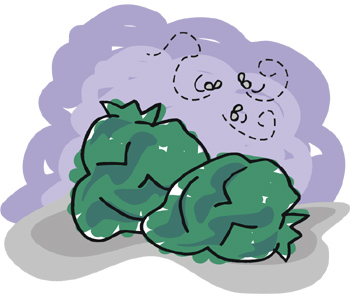
|
Biodegradable Plastic Bags: It
is estimated that it takes up to 1,000 years for a plastic bag to
decompose. Keep this in mind and consider how much of these
non-biodegradable wastes go to the landfill each year. If you're into a
business that requires the use of plastic bags, consider using
biodegradable plastic bags as these will decompose after a couple of
months.
|
|
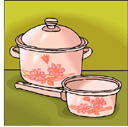
|
BPA Free Dishware: Items
made containing plastics can contain chemicals that can leach out into
your food. Be sure any safety ratings or representations regarding your
dishes are provided by a reputable third party.
|
|

|
Buying a Home: When
buying an existing home, insure that double pane windows, wall and
attic insulation, and solar panels are all part of any deal.
|
|

|
BYOC: Bring
your own cup to your favorite coffee shop. You’ll save energy, most
coffee shops give a discount, plus coffee always tastes better inreal
cup.
|
|
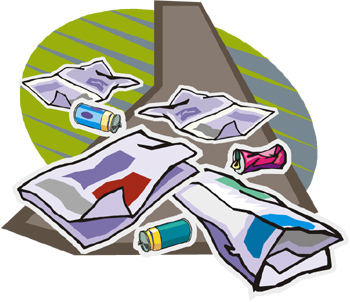
|
Cancel Newspaper Subscription: Cancel
your printed newspapers and magazines and subscribe to the online
versions. It takes a lot of energy to make the paper, print, and deliver
these publications to your door.
|
|
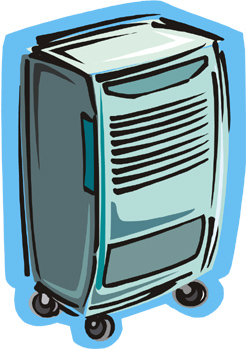
|
Dehumidifier: Turn off the dehumidifier on dry or humid days when it is not needed. The same is true for other cooling or heating devices.
|
|
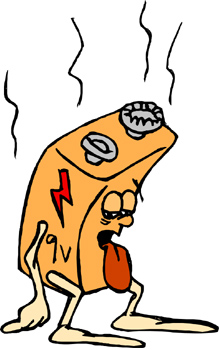
|
Dispose Batteries Properly: Household
batteries contain hazardous materials and throwing them in the trash is
now prohibited in California. Properly dispose off your batteries at
the retail centers where you bought them.
|
|
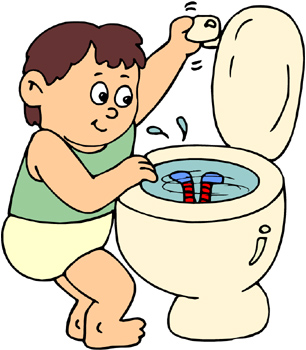
|
Low-Flush Toilets: Install low-flush toilets to save water. Many communities have water conservation programs that may pay for the new toilets.
|
|
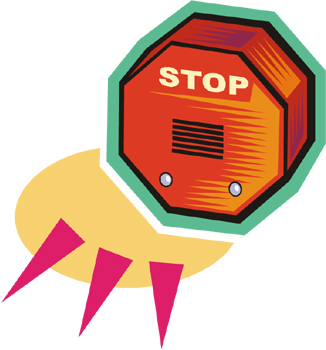
|
Motion Sensors: Add
timers or motion sensors to anti theft lights or other electric or
security devices so that they do not consume power 24 hours a day, 7
days a week
.
|
|
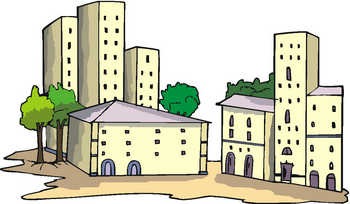
|
Moving Out: When
planning a move to a new home, consider the distance between the
neighborhood and public transportation to reduce private vehicle use.
|
|
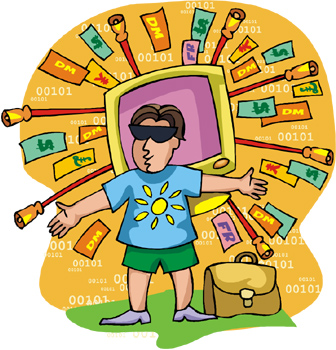
|
Online Shopping: Do
your consumer research on the Internet and buy as many things as you
can online. You’ll save time and the small shipping fees are much less
than what you would spend driving around in a vehicle.
|
|
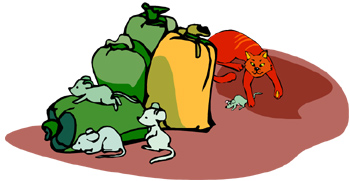
|
Paper Bags: Do
you know that about 88 billion plastic bags are used in the U.S. alone
each year? This represents 12 million barrels of oil. When shopping,
consider bringing your own paper bag to eliminate the use of plastic
bags. Encourage your peers to do the same.
|
|
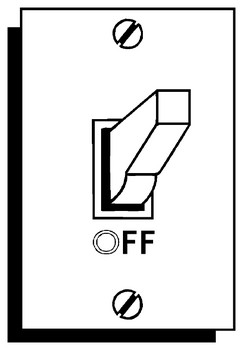
|
Power Strip: Place
as many plugs for non-essential items, such as your computer
peripherals, onto one power strip as it is safe. Get in the habit of
turning off the power strip when not sitting at your desk or put it on a
timer
.
|
|
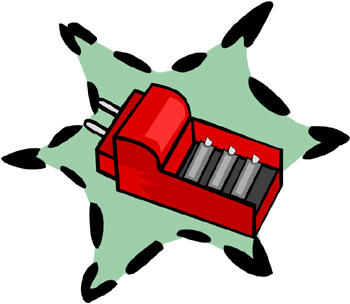
|
Rechargeable Batteries: Purchase
a good selection of high-quality rechargeable batteries and a charging
unit. You will be saving money in the long run while keeping hazardous
materials out of our environment
.
|
|
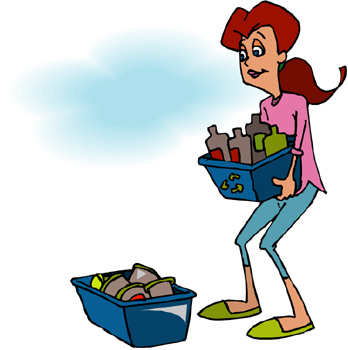
|
Recycled Containers: Be
diligent in recycling all your newspapers, cans, bottles, plastics,
cardboard and other materials. It takes a lot of energy to make new
containers, paper products and packaging
.
|
|

|
Recycle Food Jars: Food
that comes in glass jars make excellent organizers for screws, nails,
tacks, etc. Rather than toss your used jars, mount the lids using two or
more screws on the underside of a garage cabinet to view an impressive
array of hardware that will come in handy around the home.
|
|
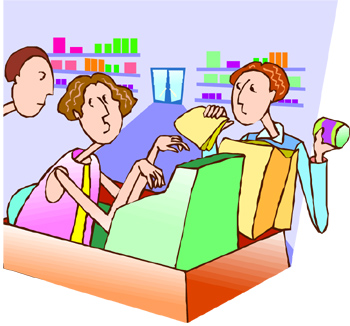
|
Refuse a Bag: When shopping, refuse a bag if you don’t need it. Cashiers are often on autopilot, bagging even single items.
|

|
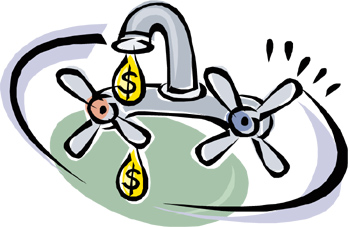
|
Regular Plumbing: Properly
maintain your plumbing and fix leaky faucets. Other than adding to your
water bills, leaky faucets also create damp areas in your home that can
be the breeding ground for different bacteria and insects
.
|
|
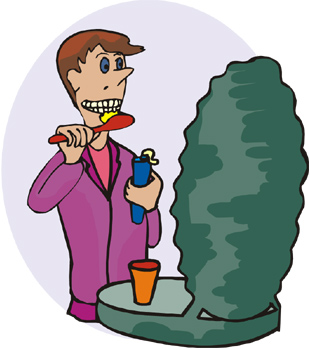
|
Running Excess Water: Stop running excess water when brushing teeth or shaving. Brushing or shaving with hot water wastes both energy and water.
|
|

|
Sleep Mode: Activate
the "sleep” feature of your home office equipment (PC, fax, printer,
scanner, monitor) so they automatically power down when not in use
.
|
|

|
Sustainable Materials: When buying a new home, look for home builders that use recycled or sustainable materials and provide a solar power system.
|
|
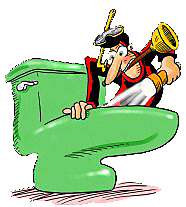
|
Toilet Garbage: Don't
use the toilet as a wastebasket or ashtray. Water is wasted every time
you flush trash that could have been thrown in the bin. On top of this,
you may need to spend additional money to fix the plumbing when
something gets stuck in the pipes
.
|
|
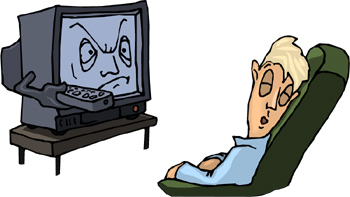
|
Turn Off TV: Turn
off the TV, VCR, stereo or radio when not in use. Most of the energy
consumed in various homes could have been saved if appliances were
turned off when they are no longer needed. Make sure to remove the plug
as well since devices that are on standby mode still absorb energy from
the source
.
|
|
|
|
|